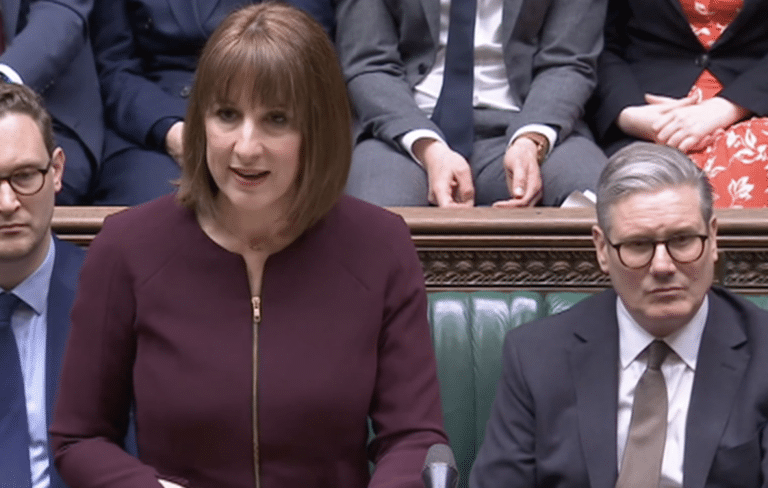Rachel Reeves has delivered her much anticipated spring statement today with a raft of announcements on welfare reforms, defence spending and public sector cuts.
The chancellor’s statement was made as The Office for Budget Responsibility (OBR) halved the UK growth forecast for 2025 from 2% to 1%.
As people – and businesses – across the country digested the statement one business leader – and lifelong Labour supporter – sounded the alarm claiming Ms Reeves’ policies could have ‘catastrophic’ consequences for the most vulnerable.
READ MORE: Heartbreak as ‘lovely’ BBC radio legend passes away
Katie McCann, managing partner and founder of Manchester and London-based family law firm Lowry Legal, praised Labour’s pro-work ethos but claimed welfare cuts and tax hikes as “ill-thought-out” and potentially devastating for vulnerable Brits.
A self-described “born and bred working-class girl,” McCann strongly endorsed Reeves’ declaration that “the Labour Party is the party of work.”
“Work creates structure, discipline, self-respect, direction, purpose… the list goes on,” she said immediately after the chancellor’s statement was delivered. “I stand shoulder to shoulder with that.”
However, she expressed alarm at Reeves’ revelation that 1,000 people a day are now qualifying for Personal Independence Payments (PIP), questioning the societal breakdown behind the trend.
“Why are people in a place where they’re not physically or mentally able to work?” McCann asked. “You only have to look at Netflix’s Adolescence to see why young people face unfathomable stress and anxiety – something my generation never dealt with.”
While welcoming Labour’s pledge of £1bn for employment support, McCann dismissed it as “merely a drop in the ocean” when weighed against the employer National Insurance rise, which she argued makes hiring harder.
“You can’t burn this candle at both ends,” she said. “If you want to get people into work, why make it more expensive for businesses to employ them?”
McCann reserved her sharpest criticism for the £4.8bn welfare cuts, warning they could backfire without a robust jobs market to catch those affected.
“I fear these cuts will ‘save’ money on one side but cause catastrophic loss of income for the poorest and most vulnerable,” she said. “Where’s the safety net if the economy isn’t growing fast enough to provide abundant employment?”
More than 3 million families will lose out financially as a result of cuts to welfare benefits by 2030, amounting to an average loss of £1,720 a year, government analysis has found. Although, the Department for Work and Pensions’ assessment also finds that 3.8 million families are set to be on average £420 per year better off due to the changes.
Some key takeaways from the Spring Statement 2025:
Economic growth has been downgraded after the OBR halved 2025 growth forecasts (from 2% to 1%), citing global challenges. Longer-term growth projections improved slightly (1.7–1.9% annually from 2026–29). The deficit to turn into a surplus (£6bn+) by 2027–28.
On welfare cuts £4.8bn savings are being made from welfare reforms, including 50% cut to Universal Credit’s “health element” for new claimants; and standard allowance to rise from £92/week (2025) to £106/week (2030).
On defense, an additional £2.2bn is being made available for the MoD in 2025 to meet NATO’s 2.5% GDP target. It will be funded by Treasury reserves and foreign aid cuts.
The Chancellor did not announce any new takes but said the government would ramp up efforts to tackle tax evasion. She said the government would aim to prosecute 20% more tax evaders, raising £1bn.
On public sector spending cuts, the chancellor said government day-to-day spending would be reduced by £6.1bn by 2029–30. She also announced a new £3.25bn “Transformation Fund” for public service reforms and has a target of 1.5 million new homes.










